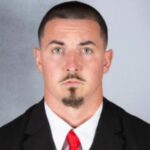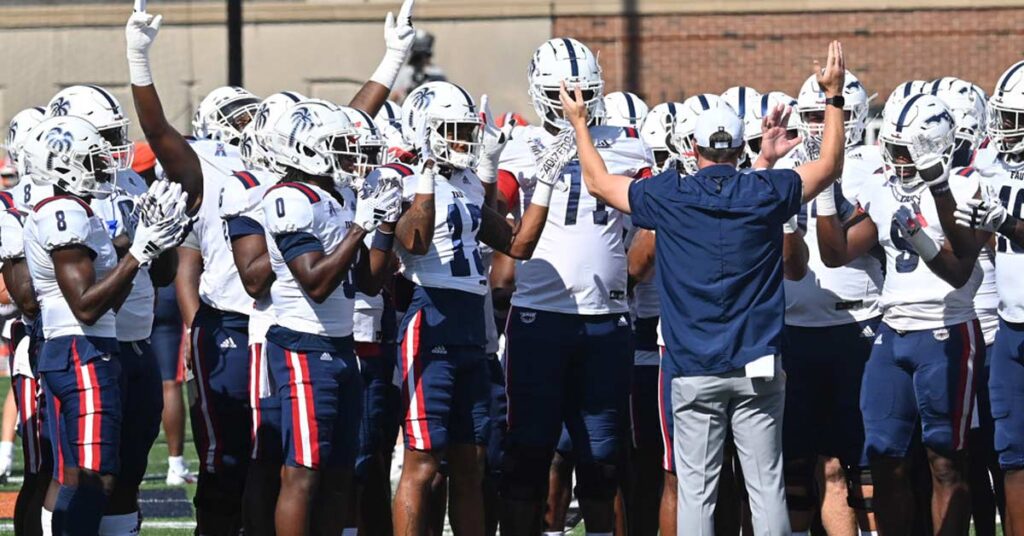
One of the most frequent questions asked in job interviews or at conferences is, “How did you get to (insert whatever school you are currently at)?” This simple question warrants extreme depth when you truly sit down and rehash your journey.
Every young coach wants directions on how to climb the proverbial professional ladder. We act like there is a cookie-cutter plan that will guarantee success at an extremely fast rate. The secret is…there isn’t, and every route is different. There are ways to help cultivate the type of development that leads to career advancement, and that is through the environment you put yourself in and the amount of personal development you invest in yourself after these extremely demanding days end. This profession is about growth and advancement.
Every young coach wants directions on how to climb the proverbial professional ladder. There’s no cookie-cutter plan to guarantee success quickly; every route is different, says @CoachJoeyG. Share on XThe reality of a Group of Five school is that we cannot pay the same as, nor have the budget of, a Power Five school. Because of this fact and our popularity on social media, we have a lot of coaches call about current staff members. During my tenure at FAU, I have seen over 15 staff members leave for new roles with pay raises and increased responsibilities. It is up to the director to promote and push assistants toward greater opportunities, even if that is not on your current staff and doesn’t directly benefit you.
Some of our former assistants have risen to director roles or top assistant spots nationwide. After a few of these staff rehauls, you realize that the growth maturation process and education system of your program are crucial to the successful execution of high training standards. It is up to the director to produce an environment that pushes growth.
The motivation for the self-education process is driven by the climate in the staff room and how determined the staff is for self-improvement. I have been extremely blessed to witness some elite staff members who have directly influenced how I shaped my philosophy as a head strength coach. Young coaches—look for opportunities to see what the job’s supposed to look like, which happened for me in 2011 when I went to observe Coach Moffitt and the LSU Tigers. Looking back, this moment forever changed how I viewed the profession. The amount of intensity, detail, knowledge, and care the entire staff showed during an hour-long session blew my mind and made me realize how far off I personally was from this performance.
This article reflects on some of the contributing factors behind my personal growth and advancement, along with some contributors I’ve worked with or who have been part of my staff. Every staff has a life of its own, but all successful staff I have worked with or watched up close share common foundations. By drawing on different experiences, I hope to illuminate some of the driving factors behind the development of a strength and conditioning coach.
“You Don’t Know What You Don’t Know”: Tommy Moffitt, Creator and Operator of the Moffitt Method (3x National Champion)
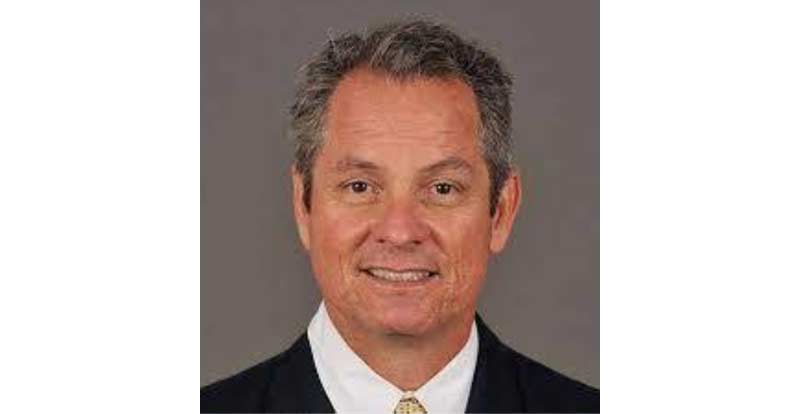
Coach Tommy Moffitt’s resume speaks for itself, as he’s had three national championships with three different head coaches. Coach Moffitt’s tree of assistants is vast and extremely successful, and more than 10 of his former staff members have moved on to become head strength coaches at Division 1 universities. I had the opportunity to intern for Coach Moffitt (although for an extremely brief period), and three things stood out about how he operated.
- Details were everything, and no job was to be performed without them. Whether it was tying the rotator cuff bands to the racks or restocking the fridge, details mattered and were evaluated. Jeff Dillman had a quote where he asked a group of people simple questions that drove home this point. “How many of y’all have ever been bitten by a lion? None? What about being stung by a bee? If you were to get stung 100 times, you die—see, it’s the little things that kill you!”
- Competition is everything. It could be the un-talked-about competition of trying to become the next coach called up to run a program or a staff lift where you tried to out-snatch a co-worker. When you walked into the building, you knew you were competing; you craved it or didn’t survive. It drove your growth because there was the feeling that you didn’t want to fall behind.
- Alignment was demanded and taught. This alignment was not just centered around daily procedures but also training philosophy and leadership philosophy. Every staff member was expected to understand and emulate the department’s philosophy. Although there was rigidity in how we did things, new ideas were encouraged, and growth was pushed.
These three main components of Coach Moffitt’s program have also been a point of emphasis, directly or indirectly, on every successful staff I’ve been involved with. Since witnessing the staff at LSU, I have made this a foundation for how my staff must operate, and these principles are reflected in my staff today.
You’re only as good as the people who work with you. Staff development is key to fostering a productive culture, says @CoachJoeyG. Share on XYou’re only as good as the people who work with you. Staff development is key to fostering a productive culture. There are too many tasks in a day for one person to handle—the ability to delegate specific responsibilities increases the production and development of the people around you. Staff dynamics are not neutral and need to be guided to be successful. I have been part of very good staff and others that were very unproductive.
It is a coach’s job to teach and encourage growth, and through my experiences and some people whom I have worked with or have been on my staff, I want to paint a picture of what it takes to develop as a strength and conditioning coach. Young coaches are most impressionable earlier in their careers, which is why I hope this collection of shared experiences takes hold and helps shape younger coaches to success.
Taking a Role as an Assistant: Paul Jackson, Director of Athletic Development for Football, USU
In January 2014, I was fortunate enough to get the opportunity to work under Paul Jackson at the University of Mississippi. Coach Jackson, a former LSU assistant coach known for putting out some of the best training videos in the YouTube era, was on a meteoric rise. The amount of growth that I experienced in the next four years was career-altering. On my first day on the job, Coach Jackson had Lee Taft come in for an in-service on COD and speed training.
This example of knowledge-seeking was not limited to a one-off scenario but was pushed upon us daily. To this day, one of the worst feelings I have felt as a professional was having Coach Jackson walk by my office and see me not reading. The environment was set for us to seek further understanding of training in all areas.
Another priority was the relationships fostered with players. Coach Jackson never let us forget that this field depends on interpersonal skills, and players should be able to trust us. Trust is built on your personal character and connection with those players. It takes time, and it is an investment.
I was extremely fortunate to be on a staff with several assistants who aspired to be head strength coaches and worked toward it daily: Dom Studzinski, Lanier Coleman, and Anthony Crosby were three of the assistants who molded me the most. From the minute I arrived on campus, I had no choice but to follow their lead. We worked as a team in every aspect but also competed as individuals. It was always a competition for who could get to work the earliest or read the most books in a year. The feeling was you never wanted to be the weak link, and you wanted to contribute more to the program than what you were doing.
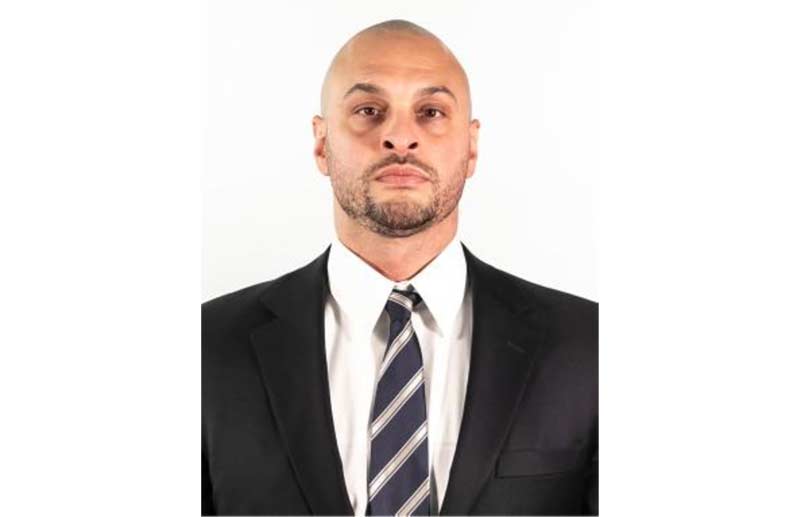
Coach Jackson believed in autonomy and prescribed each assistant a role within the department for which they were directly acc. The level and impact these sub-departments had was directly up to the manager of those departments. There was a minimum standard each department was expected to uphold, but our staff as a whole wanted more than the minimum.
These managerial experiences gave us opportunities to expand our roles and develop skill sets in a specific discipline. This gave me the feeling of more buy-in and pride, as I was contributing to the success of the athletes and program. Many of the issues that arose were handled among the assistants, and we all tried to predict any potential problems and prevent them from reaching Coach Jackson. Coach Jackson had a clear view of how we would operate, which was taught and reinforced throughout my tenure.
Every training period started with a staff in-service where we were taught exactly how to implement his program and the processes that accompanied it. No detail was left untouched, and standards never faltered. It’s no surprise that Coach Jackson has had several assistants move on to higher positions, as it was impossible not to get better under his tutelage.
Roundtable Contributors
Eric Donoval: Director of Sports Performance (FB), Wyoming
I was fortunate to work for Coach Tommy Moffitt for nearly eight years as an intern, graduate assistant, and full-time assistant.
From the first day stepping onto campus and into that weight room, Coach Moffitt made it very clear how things would operate. There were clear and concise standards that were to be implemented, not only on a daily basis but on a moment-by-moment basis. We were going to speak the same language, “The LSU Way.” There may be different dialects, but as a staff, we would do things one way. If it wasn’t done that way, you were going to hear about it. The consistency in coaching was what led to consistency in our athletes.

Athletes crave structure (despite what they sometimes think or feel in the moment), and structure comes down to well-defined standards, high expectations, clear boundaries, and consistency in accountability. Coach Moffitt applied to the coaching staff the same standards and concepts that we applied to athletes.
1. Developing Future Head Strength Coaches
Coach Moffitt would not allow assistant coaches to get complacent in their current role, regardless of how well they coached. He wanted coaches who were driven to improve, brought continued and evolving value to the program, and hoped to run their own programs someday. He wanted to develop bosses, not just assistants. He gave autonomy to the staff, delegated large responsibilities to assistants, and put pressure on us to find solutions and get the job done right—all while allowing us to fail and grow.
He challenged and pushed coaches to be their best daily, just as we do with our athletes, because he saw potential in them and wanted to prepare them. He would tell us daily to “be the coach you want to be someday and be him today”—and then gave us opportunities to do so. We lived by this and had a staff that acted like head strength coaches within their roles.
Whether it was coaching your athletes on the platform, additional programming or modifications for your group, GPS analysis, researching and bringing new ideas to the table, or administrative duties, we had a staff that viewed each responsibility, big or small, as the most important part of the program and took pride in them. Ultimately, if something was not up to standard within your responsibilities, you were held accountable for it. During my time at LSU, there were 10 future FBS head strength coaches working on staff under Coach Moffitt at some point. His development of assistant coaches, in addition to his athletes, is unrivaled in college football.
2. Being Proactive, Not Reactive
“If someone notices, it’s too late” was a phrase we lived by as a staff. Whether it was correcting a detail of a lift, spinning a crooked bumper in the weight room, having reports ready before being asked, or knowing exactly the number of protein drinks we went through for the week, we always tried to be proactive in getting things done before they were needed. If he gave us a standard of how something needed to be done, we made sure it never got off track; if it did, we had all assistants constantly on alert in all aspects of the program to make sure it got back in line before anyone noticed.
3. No Detail Too Small, No Job Too Small
There was no detail too small in the program. Small things turn into big things. Therefore, there are no small things. From how the weight room or field was set up and how we stocked the fridge to athletes lining up behind the line and their lifting and running form, every detail was discussed, understood, and executed at an extremely high level.
There was also no job too small. After all, if we don’t do it, who will? Whether it was taking the garbage out if it got too full in the weight room, making sure the windowsills didn’t have dust on them, or bagging fruit for our athletes before nutritionists were even hired, the details that were demanded and adhered to in every aspect of the program was what made this program so special and successful.
Coach Moffitt’s pride in the program permeated throughout his staff, and because of that pride, each assistant took extreme ownership of everything. If something was not up to standard, every assistant automatically looked at himself in the mirror and took ownership of it, regardless of what it was. While each assistant had their delegated responsibilities, the staff acted as a team, understood the standard in all facets of the program, and looked out for anything and everything: five sets of eyes are always better than one. Although responsibilities evolve as you progress to different positions in this field, keeping an “intern mindset” was important as full-time assistants because we are never too big for any job—it’s got to get done.
Jake Beckett: Assistant Football Strength and Conditioning Coach WSU
The short time at Florida Atlantic University was nothing short of metamorphic. On every level and in every way, my personal life, professional life, and life as a human being have changed. Joey Guarascio was one of the best directors I have ever worked for. Joey demands competency, diligence, attentiveness, zealousness, and fortitude. And if you lack or have an issue with any of those, buckle up because you’re going to develop them in one capacity or another, or you’ll crash and burn.
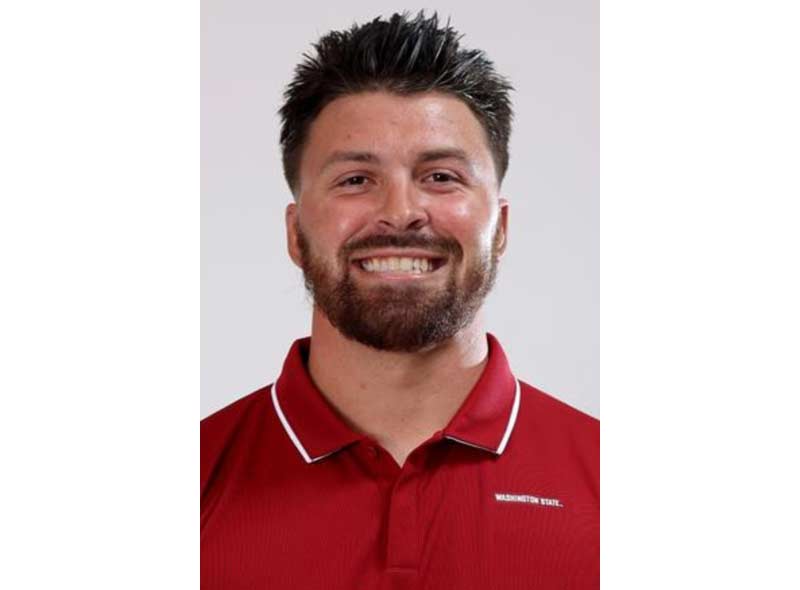
A couple of the most advantageous qualities I developed at FAU were:
- Working within a structured system.
- Building relationships with some of the most insane players/coaches in the country.
- Learning how to manage my personal life.
1. The System
Joey’s system for his staff, players, and football coaches is the most detailed structure I’ve ever been a part of. You know exactly what your role is on staff, what is expected of you, and how you’re expected to do it. If you do something wrong, you’ll know about it—you’ll never be in the dark, wondering what’s going on.
Everyone on staff has their own pillar they are responsible for, whether the intern coordinator, nutritionist, mobility and corrective exercise programmer, technology/sports scientist, academics and athletic trainer liaison, return to play coordinator, facilities and maintenance specialist, or accountability/consequence manager. You’re responsible for one or two sectors and have the autonomy to run them as you’d like. One rule, though: you have to be the best in the country at it—no exceptions.
As a strength staff, we meet constantly. Every morning before the day starts, typically at 5 a.m., we go over setup, position run and lift expectations, injured athlete schedule, timing, and pairing of particular constructs. We are given weekly readings and homework assignments—usually, we go over them once or twice per week—and that work is done after your work is done for the day. At the end of the day, we go over how the day went, what we could improve on, what athletes need more or less attention, and how we feel about the culture of the team. Once meetings were done, as a staff, we worked out together or worked on personal projects.
2. Relationships
FAU is flooded with some of the most spectacular human beings in the country: kids from inner-city Miami, downtown Atlanta, New Jersey, and more. Every kid had a story; something was fueled inside them, and they all had something to prove. The best part was hearing their stories and working with them daily—seeing their emotions fluctuate and pierce your soul with every conversation. And if you can’t explain exercise prescriptions to them in a general way or relate to them in a personal way, they will never trust you.
FAU kids are very socially proficient—they know when you’re having a bad day, they know how to piss you off, they know how to manipulate and deceive. They don’t know how to trust someone who isn’t built on the same characteristics they are. Want to know how to gain their trust? Show them your love, show them direction, and show them you can help them reach their goals. Once they feel and know that you, as a coach, want to be the best in the country, they will do absolutely anything for you and go to war for you any day.
3. Personal Life Management
Time management is everything. You are going to work 10- to 12-hour days. You’re going to work on the weekends. You’re expected to be on time. You’re going to have to find a way to manage your work and home life. FAU is not a Power 5 school. Joey has five assistants on staff, meaning you’re not going to be paid a whole lot. Therefore, you need to find a way to sacrifice all the fat in your life and focus on what is really needed.
You’re not going to be paid a whole lot as an assistant. Therefore, you need to find a way to sacrifice all the fat in your life and focus on what is really needed. Share on XMy significant other and I were able to develop a system of prioritizing our needs, not our wants. We found out what needed to get paid every month, when we could have a special occasion, and when we needed to buckle down and eat ramen noodles and chocolate milk for dinner. There was no room for weekly splurges and luxurious purchases. This comes with a price; if you’re single, it’s much easier, but if you’re in a relationship, your significant other must understand the end goal.
The goal isn’t to live in an apartment in Boca Raton, Florida. The goal is to get a better job, learn from one of the best in the country, and develop habits you can maintain throughout life. As a couple, we learned so much about managing money and valuing time spent together.
David Ventress: Director of Olympic Athletic Performance, South Alabama
I wouldn’t be in the position I’m currently in without my experience at FAU under Coach Joey and his staff. Having a competitive work environment really helped shape me into the coach I am now. Every day was a constant battle to improve myself. I thrived on the challenge of being the best coach on our staff, even though I was far from it. Working with these guys pushed me to be a better person every day.
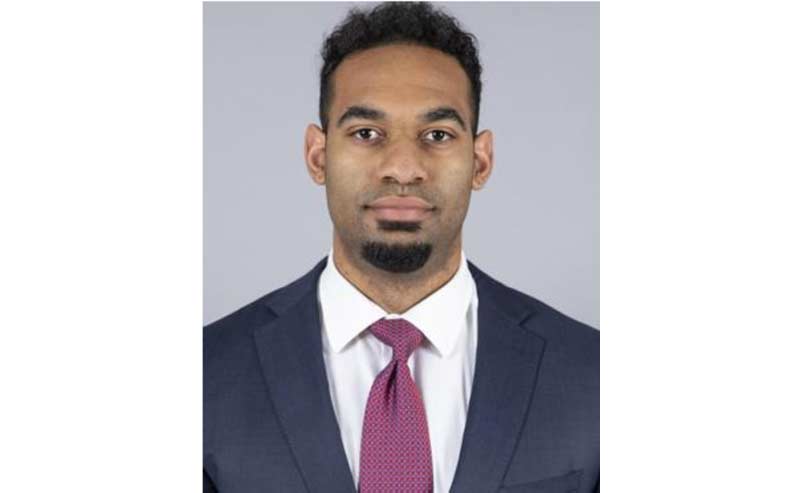
During my time as an assistant, I learned new skills every day from the other coaches on staff. Coach Jaylon Watson taught me how to keep guys accountable. Being accountable for your own actions is important. Mistakes are going to be made, and you should own up to them. As a coach, this is how I was able to grow and learn from my previous errors.
Coach Jake Beckett taught me how to build relationships with my athletes. I made it a personal goal to try and get as many athletes as possible in my office after sessions. You can’t coach people you don’t know. Earn the right to coach them hard by first getting to know them as people.
Earn the right to coach athletes hard by first getting to know them as people. Share on XCoach Robert Marco taught me how important attention to detail is. Carrying out tasks accurately and thoroughly helps to eliminate careless mistakes. As assistants, we were given complete autonomy over departments. My area was sports science and data integration. I was responsible for sending daily practice reports to our athletes and coaches. This prepared me for presenting a near-perfect end result.
In my current coaching role, I am constantly updating my coaches on GPS data and performance numbers, so it’s very important to present high-quality work. Coach Guarascio taught me to invest in the athletes and coach them hard every day. Learning how to coach and communicate with athletes was one of the most important skills I learned. This is one of those skills that’s often overlooked by fancy programming and data. I learned how to coach by leading team warm-ups and instructing my own position group during lifts and speed sessions. This taught me how to command a room and be a presence on the floor.
Jaylon Watson: Director of Football Sports Performance, Jackson State
My time at FAU under Joey G was an experience that every young, green, and hungry coach needs to have to earn an early edge within this field. A huge aspect that helped me was coming to work every day and taking pride in my craft, knowing there is no such thing as a small detail.

I was challenged daily from a practical and scientific perspective of why we do what. Throughout my journey as a young strength and conditioning coach, I have had the pleasure of learning from some of the best coaches in the game, like Eric Donoval, Joey Guarascio, and Lance Barilow. Each has his own beliefs when it comes to training, but I have truly understood the importance of these three specific pillars:
1. Relationships
Forming genuine and honest relationships with the young men you will be mentoring is by far the most important piece for my development as a coach. At the end of the day, it’s not just a business of S&C; it is a business of people. If we are not genuinely tuned into the young men we are trying to build up, how can we expect them to buy into any plan we establish?
2. ABCs
I was first introduced to the term “ABCs” during my time in Wyoming with Coach Donoval: Always Be Coaching. Every Set—Every Rep—Every Second. There is always something that needs to be coached, no matter how small of a detail there is, and once I arrived at FAU, it really helped me grow to truly see how detail-oriented you have to be in order to be dominant with your “ABCs.”
3. Be Where Your Feet Are
Never think ahead of what you are currently doing or to the next possible opportunity—be in tune with the people you are working with and the people you are coaching. If this is not important, you will catch yourself chasing ghosts instead of GROWING and being the best version of yourself for your staff and the team.
Never think ahead of what you’re currently doing or to the next possible opportunity—be in tune with the people you’re working with and the people you’re coaching. Share on XChula Loomis: Assistant Strength and Conditioning Coach (Football), Kansas
When you think about the job we have, the most integral part is the ability to coach—it’s in the title. To begin any time of year (e.g., summer, winter), the entire staff is taken through an in-service to review any and all movements included in the program both on and off the field. These days serve as a means to ensure the entire staff knows what we are doing, when we’re doing it, and how we’re getting it done.
For any successful staff, this is the base for success. As time goes on, the amount of coaching and “people reps” is exponential. I say “people reps” due to the fact that day in and day out, we are training the team, and depending on the time of year, there will be other groups: Pro Day Prep, pros, or camps.
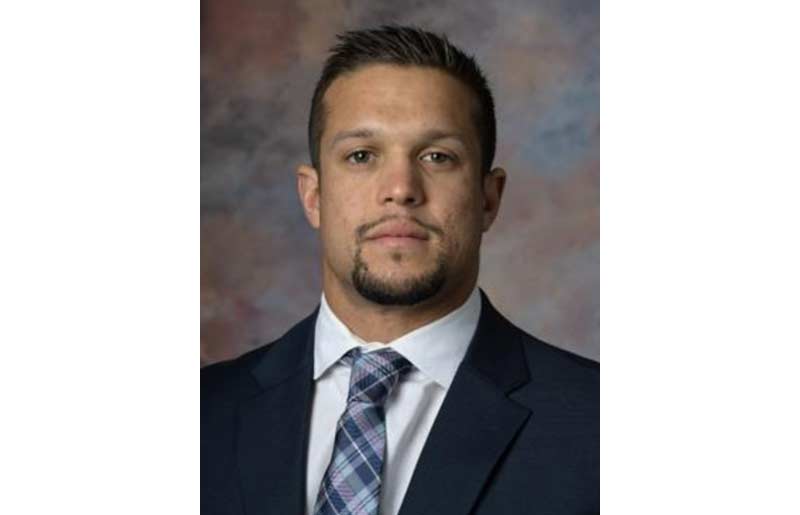
Continuing education is an integral piece of the puzzle for every coach and helps drive Coach Guarascio’s staff forward—he recommends we invest in ourselves, pushing us toward different courses and learning opportunities. Over the summer, we had several speaking clinics and hosted a USAW clinic. During the fall of 2022, we met weekly to review articles and read through different books, and we had a number of Zoom calls with high-level coaches and staff to exchange ideas, methods, and practices. This is a place where you are challenged constantly to add tools to your game.
The room and environment created is another layer that goes into pushing athletes and coaches, preparing them for the next job to come. The goal is to create competitors across the board: pushing athletes to be where their feet are and compete against their teammates and their best daily while driving coaches to produce results, sharpen the sword that is our athletes, and get our guys to commit to doing extra work.
We commonly heard and used the term “elite is not just a word; it’s the standard.” This put much-needed pressure on us to course correct and move in a way to keep the program on the right path. With all of this, you are growing and developing right now, which will impact the value you bring down the road. If you listen closely, there are lessons on how to be a great director/leader/coach everywhere.
Marcus Brock: Assistant Strength and Conditioning Coach, Director of Basketball S&C, Missouri State
When you first start your pursuit in this field, from the outside looking in, it appears simple enough: you train athletes to grow stronger, get faster, jump higher, be more resilient, and, ultimately, increase their performance. In most ways, this is true, but what you don’t realize when you first start out is how to achieve those qualities and what it takes to get there.
I was fortunate enough to start my career working under Joey Guarascio as an intern, eventually becoming an assistant on his staff. My time working with him at FAU not only set me up for success but prepared me for future opportunities. I can say without a doubt that every day, stepping into that facility, I was challenged to be my best while also being put into a position to learn and continue my growth as a professional.
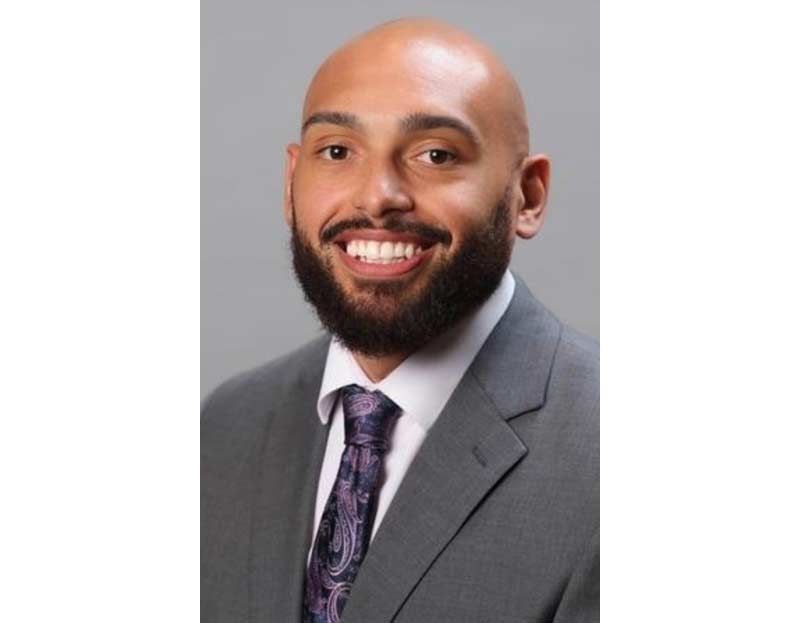
As an intern, I was introduced to programming, Olympic lifts, GPS data, and other methods to continue my education in this field, which carried me into the assistant role. Joey did an incredible job developing a great staff that was able to project what it took to be at that elite level; guys like David Ventress, Jake Beckett, Robert Marco, and Jaylon Watson all had a hand in making that happen as well.
My time as an assistant on his staff was spent being put into a position to grow and step outside my comfort zone. Coach Guarascio taught me how to control a weight room, be a problem-solver, and invest in the players. There was one thing that I noticed every day, and that was athletes sticking around just to talk to Joey, have a normal conversation, get his insight on things, ask weight room-related questions, or just crack a couple of jokes.
I take that with me to this day because he’s able to develop a certain level of trust with the guys to where they’re willing to follow what he says because they know he has their best interest in mind. I believe that’s true with not only athletes but also with the staff. It is a true testament to what he does and what developing a staff takes, and that’s the level of trust.
Bob Marco: Associate Head Strength and Conditioning Coach, FAU
My time at FAU has shown me more than I could have imagined about myself. How to work, be punctual, and be efficient in both my work and personal life. It’s also taught me how to create relationships, how to learn, and how to be coachable. I’ll just talk about a couple of these examples here.
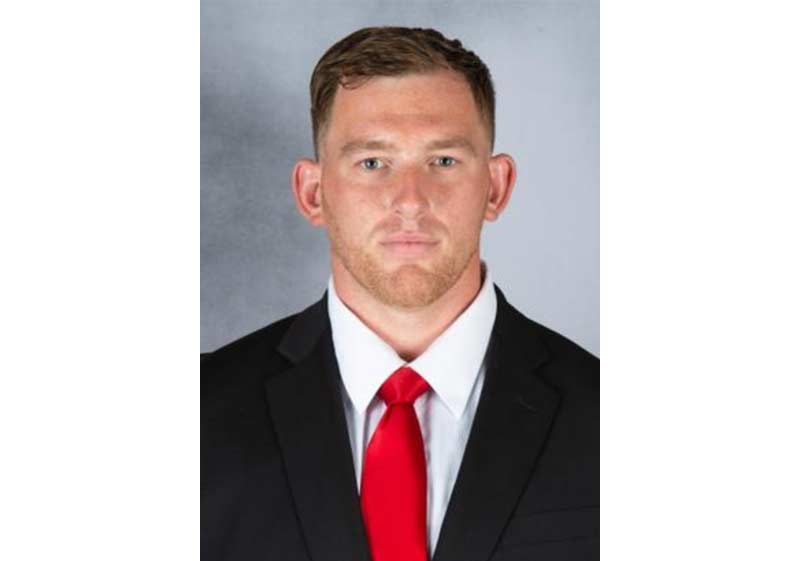
Those examples probably seem obvious to most. These are all things we’ve learned growing up, playing sports, interning, and working…but something seems different about my development here versus other points in my life.
1. How to Work
This was the first thing that I learned when I arrived at FAU in 2021. A lot of us work hard in this business—this area of work isn’t meant for everyone, and we know that. Explaining my hours and work schedule to my friends and family sends their heads spinning, and a part of me enjoys those discussions just to see the reactions. Outside looking in, it seems like insanity to some, but the beauty of it is when you’re on the inside, it doesn’t seem so insane.
The key to the insanity not being so insane is the people around you. A productive, cohesive, fun-ass staff that holds each other accountable is essential. Co-workers who hold themselves and you to a high standard allow for minimal drop-off in production while avoiding the animosity that builds with staff members being weak links and not pulling their weight. It forces you to be self-aware and ask yourself, “Am I doing enough?” “How can I be more helpful?” “How can I make co-workers’ lives easier?” and “How can I make my life easier?”
This helps create the “cover and move” mentality. Whatever needs to get done will get done without question or complaint. Another key component is having fun doing it. The more ridiculous and last-second the task, the more fun you need to have. We’ve built 30 yards of a football field with 30 minutes’ notice in a warehouse on a 90-degree Florida morning using a 100-foot tape measure and 20 rolls of athletic tape. We had a damn blast doing it, and you’re damn right we never even used it. You have two options: bitch about it or have a good time getting it done.
You have two options: bitch about it or do it and have a good time getting it done. Share on X2. Being Coachable
We ask our athletes to be coachable and execute everything we ask without question, but I’ve noticed that some of us don’t even do that. Pride gets in the way, and too many things get taken personally. I’ve seen this with staff members and interns alike. I’ve been guilty of it before myself, and luckily, I was part of a staff that had a great support system and experience under their belt that could set it straight for me.
I’ve been blessed to be a part of the staff that coaches me and helps me grow, and I try to return the favor the best I can. Passing that way of operating on to new staff members and interns is paramount, especially with the amount of staff turnover we have had here at FAU. To be a good assistant coach, be 100% open to being coached, and coached hard. It’s what we demand of our players and what we need to be open to ourselves.
Lead Image by Keith Gillett/Icon Sportswire.
Since you’re here…
…we have a small favor to ask. More people are reading SimpliFaster than ever, and each week we bring you compelling content from coaches, sport scientists, and physiotherapists who are devoted to building better athletes. Please take a moment to share the articles on social media, engage the authors with questions and comments below, and link to articles when appropriate if you have a blog or participate on forums of related topics. — SF
